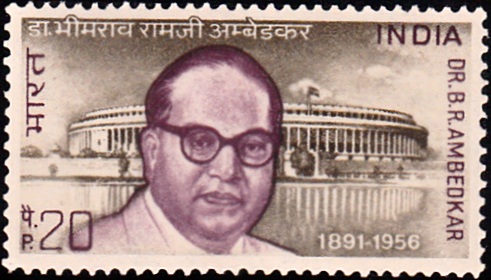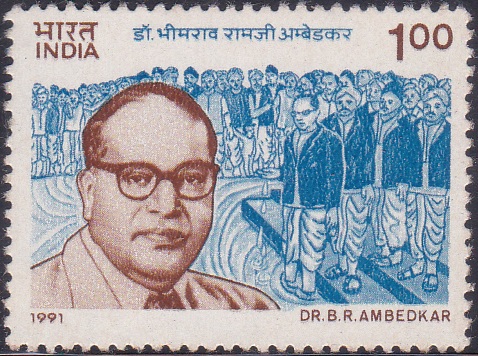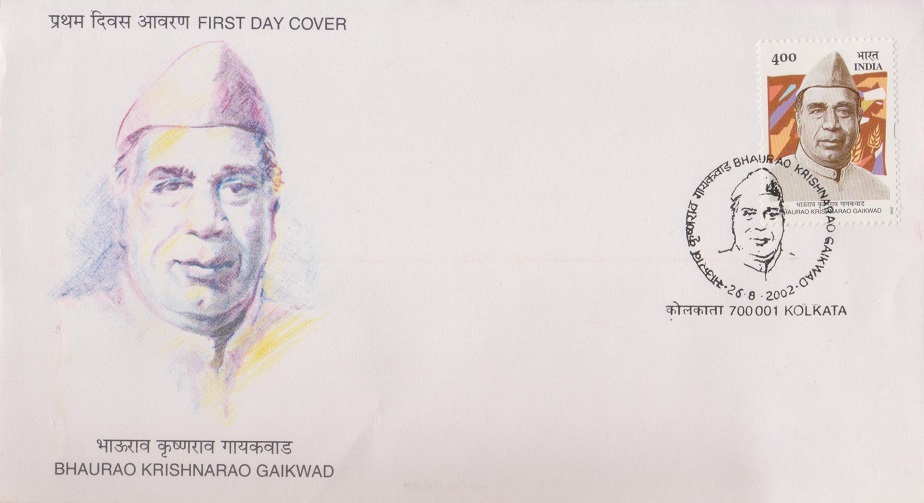
Bhaurao Krishnarao Gaikwad
A commemorative postage stamp on Padma Shri Dadasaheb Gaikwad, founder member of Republican Party of India :
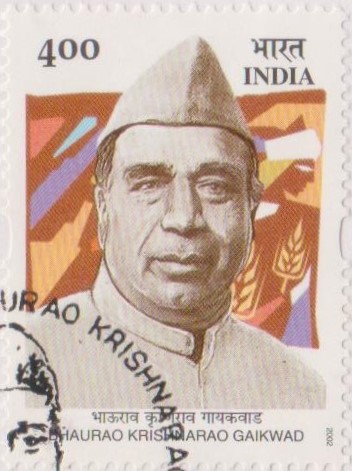

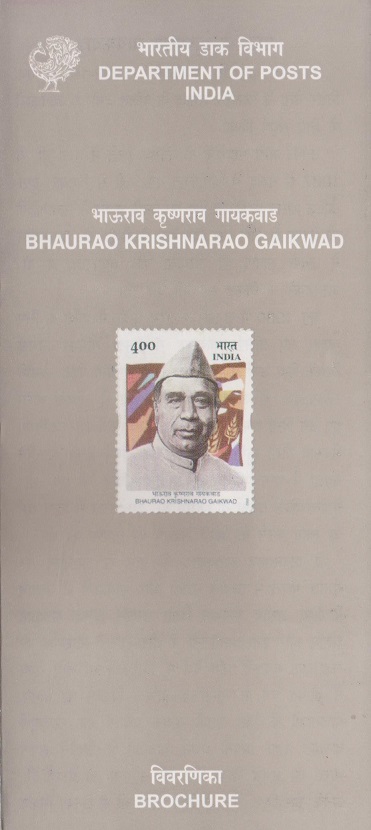 Issued by India
Issued by India
Issued on Aug 26, 2002
Issued for : The Department of Posts is happy to issue a commemorative postage stamp in the birth centenary year of Dadasaheb Gaikwad.
Credits :
Stamp : Sankha Samanta
FDC : Bharti Mirchandani
Cancellation : Alka Sharma
Type : First Day Cover
Colour : Four Colour
Denomination : 400 Paise
Overall size : 2.90 x 3.91 cms.
Printing size : 2.55 x 3.5 cms.
Perforation : 13.5 x 13.5 with elliptical hole on each 3.91 cm sides
Paper : Matt Chromo
Stamps Printed : 0.4 million
Number per issue sheet : 40
Printing Process : Photo Offset
Printer : Calcutta Security Printers Ltd.
Name : Bhaurao Krishnaji Gaikwad
Born on Oct 15, 1902 at Ambe, Dindori, Nashik district, Maharashtra, India
Died on Dec 29, 1971
About :
- Bhaurao Krishnarao Gaikwad (1902-1971) was a fearless leader who fought for the rights of the down-trodden sections of the society.
- Born in the Nashik district of Maharashtra, he rose to prominence with a rally organised in 1927 at Mahad. His oratory against the British Government inspired the Satyagrahis and was appreciated by Dr. Ambedkar who was present at the rally. He remained a close associate of Dr. Ambedkar thereafter.
- In 1930, he played a prominent part in the famous Satyagraha at the Kalaram Temple to gain entry into the temple, for which he had to suffer imprisonment. He fought the practices of untouchability and caste discrimination which were prevalent in the society during those days, bravely facing the oppression unleashed by the orthodoxy. The Dhamma Parishad at Yeola was another epoch making event organised by him, in which Dr. Ambedkar had declared his intention to leave the fold of Hindu religion.
- In post independence India, Dadasaheb Gaikwad, as he was popularly known, made immense contribution to the cause of the poor and landless. He organised many Satyagrahas and had to face even imprisonment in the course of these struggles. His relentless efforts were a crucial factor behind many of the schemes for the socio-economic development of the under-privileged in the country, particularly in the state of Maharashtra. His campaigns took him all over the country and inspired the masses at the grassroots. He was closely connected with many social and educational institutions. In 1956, he accepted Buddhism at a ceremony under the guidance of Dr. Ambedkar.
- From 1937-1946 he was a member of Bombay Legislative Assembly. He also served the country as a member of the Lok Sabha as well as Rajya Sabha. He was honoured with Padma Shri by the Government of India in 1968.
- Text : Based on material furnished by the sponsor.



